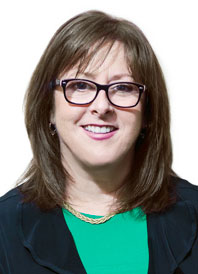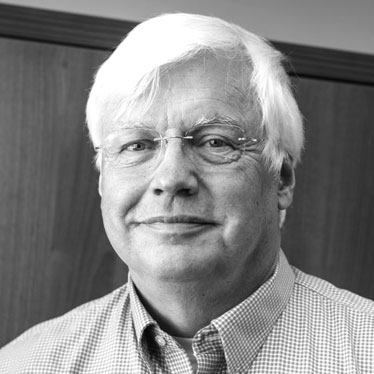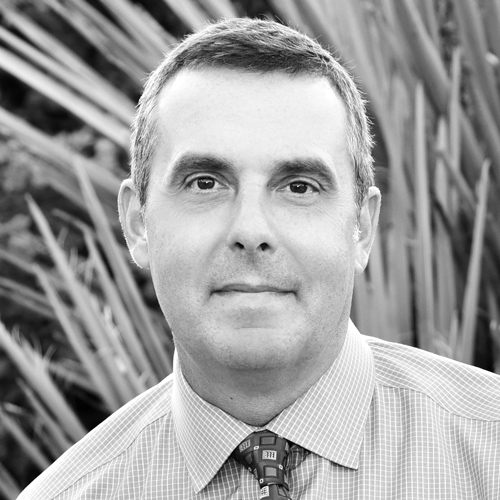Hartford Hospital, the first hospital in what would become Hartford HealthCare’s network, was founded more than 160 years ago. It’s an organization and industry steeped in tradition, but Hartford is anything but stagnant. “We spend a lot of time building our culture here,” says Tracy Church, executive vice president and chief administrative officer at Hartford HealthCare. “We’re constantly working to infuse practices that help us develop the organization and the transformation we’ve been undergoing.”
To understand Church’s practice at Hartford and her reasons for staying in the healthcare industry, it’s important to understand what drew her to human resources in the first place. Church is the oldest of four children, so she found that caring for others was her calling in life early on, she says. When she was a freshman in high school, her father passed away. “My brother, the youngest, had just turned five. My dad was thirty-eight,” she says. “It was a traumatic event for my siblings and mother. I’m not sure if she has ever recovered from that, if anyone could.” Her father’s passing thrust her into a leadership role at home.
Church, who was the first in her family to attend college, found that the leadership skills she’d practiced in her family could easily translate to her professional life. After working in insurance and benefits consulting after graduating from college, she eventually took a job in human resources. After obtaining a master’s degree in organizational management, Church turned her focus fully to human resources in the healthcare industry and has never wanted to leave since.

Church joined Hartford HealthCare six years ago as a senior vice president and the organization’s chief human resources officer. It was the logical next step in a career that, even as it spanned more than three decades, had always focused on human resources and healthcare. “I’ve worked for many types of organizations, but I’ve always stayed in healthcare,” she explains. “I’m called to help people, and I want to spend my career helping people who help people.”
Church describes herself as a generalist and says this is why she is successful in her current role. She compares generalists and specialists using the analogy of a ruler. “Balance it on its long edge, and it’s one inch deep and twelve long. That’s a generalist: someone who knows many different things, but only to a certain extent,” she says. “Now, balance it on its short end. Now it’s twelve inches deep and one wide: a specialist, who has a very deep understanding of one subject area.”
Church’s role, however, brings in partner relationships, project management, and many more areas of practice. “I have to be a generalist,” she says. “But the people I work with, many of them are specialists. For example, my leadership vice president knows a lot about one subject. I can’t ask him about compensation, but I can ask him to go into depth about leadership strategy. That’s what I need.”
As chief administrative officer, Church uses what she calls “peripheral vision.” She helps the organization spot trends, contextualize data points, and interpret information to make decisions and develop insights. Her generalist career experience has made her skilled at seeing the whole picture.
“That’s how we’re making this change initiative happen: by a thousand tiny steps, we move mountains.”
Church shares Hartford’s commitment to a united culture and standard best practices. “When I got here, Hartford leadership was focused on changes that were both self-imposed and caused by external forces,” she says. Hartford knew that there were changes it needed to make to be desirable to upcoming talent and patients, and the healthcare industry in the United States is continually undergoing industry-defining changes. Keeping Hartford both compliant and competitive is on the minds of the organization’s leadership. “In Connecticut, it’s very difficult,” Church says. “We now have more than ten business units providing care across the continuum, working to make a more integrated system, which holds the Hartford network together.”
That integrated system starts at the top, but Church is quick to note that it touches all eighteen thousand employees who are part of the Hartford system, as well as many strategic partners and vendors. One of the key pieces of Hartford’s change initiative has been to improve quality and consistency of care, to drive outcomes that are feasible financially, and to provide the best care possible for each patient. “We’re six months away from overhauling our e-records and are continuing the work to remove unnecessary variation so our patients can expect and receive the same quality of care across all of Hartford HealthCare. That comes down to accountability, and we want and need every one of our employees engaged in this important work.”
To that end, Hartford recently hired its first chief experience officer, a key voice in building the organization’s culture. A healthy culture will lead to better customer experiences, Church adds. She oversees the chief experience officer along with another executive. Together, leadership is building the kind of network-wide culture that will lead to better and more comprehensive healthcare across the board.
That’s the kind of result that Church has always sought in her human resources practice. “I moved from San Francisco to Connecticut for this role,” she says. “And my instincts were spot on. This is the most passionate group of professionals I’ve ever been privileged to be a part of. They’re individuals of integrity, they hold themselves accountable, they constantly give feedback, and they always have an eye toward helping people improve and succeed. And that’s how we’re making this change initiative happen: by a thousand tiny steps, we move mountains.”


